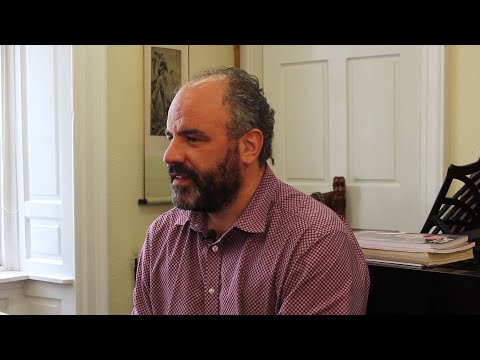Raymond MacDonald’s research explores the universality of human musicality. Many people believe they do not have "musical genes" or do not come from a musical family, and they would like to engage with music but do not for fear of failing or believing - often because they have been told by someone else - that they are not musical. Contrary to this, Raymond argues that we are all musical.
Raymond’s work provides evidence that significant musical psychological and social developments can be made by groups of individuals who often cannot access music making. There is a particular focus on improvisation, not just a defining features of jazz music, but as a unique creative and collaborate process that can provide opportunities to develop new ways of working artistically.
Improvisation is a defining feature of daily life. The earliest communication between a parent and a child is musical and improvisatory and improvisation play a crucial role in the earliest and most important bonding relationship of our lives – the relationship with our parents. His work also explores the importance of Musical Identities.
Music is a medium through which we can shape and form our personal and collective identities in a variety of ways. For example, our musical preferences, and the social groups associated with those preferences, help us construct and negotiate our sense of self. These preferences (HipHop, Opera, Experimental etc.) are inextricably linked to a collection of social and psychological variables such as feeling part of a particular subsection or cultural group within society. In this way attending a concert by the Scottish Symphony Orchestra in Glasgow or The Coachella Festival in California involve a similar psychological, social and musical process. Deciding who to go with, discussing opinions relating concerts, choosing what clothes to wear all form part of important and universal music identities related practices. Using these types of examples shows how we all have a musical identity – we are all musical.





